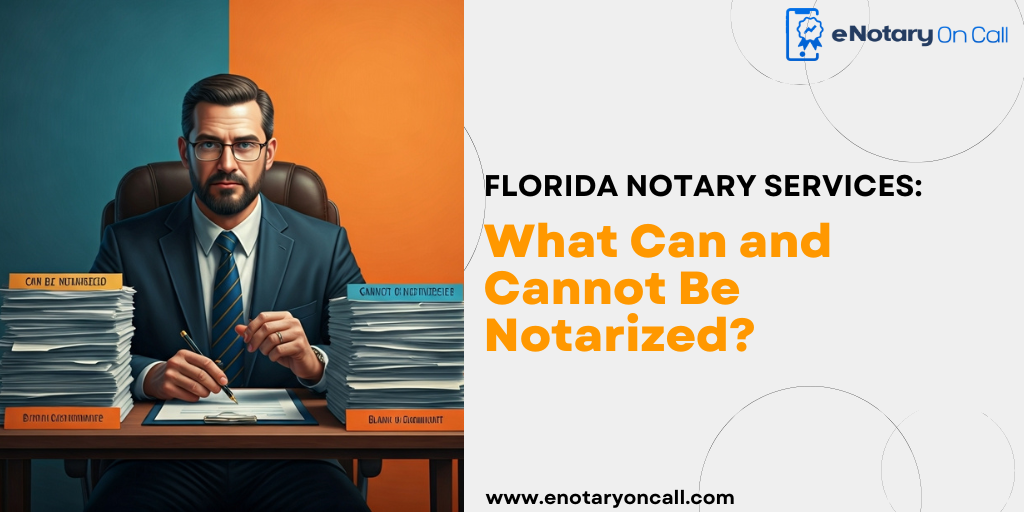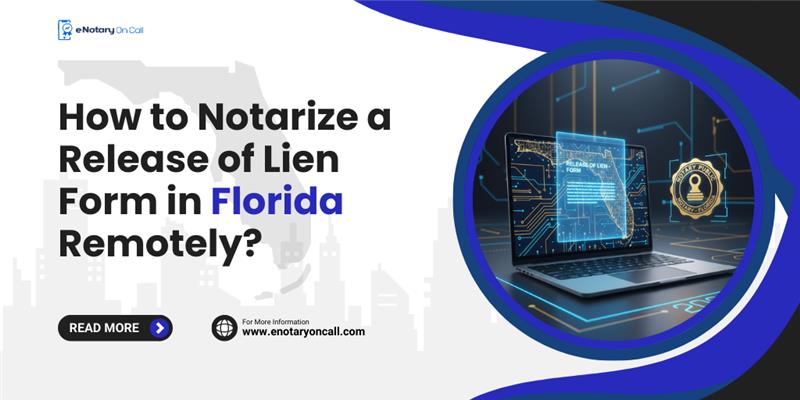Whether you’re signing over property, drafting a power of attorney form, or finalizing divorce papers florida, getting the paperwork right is only half the battle. The other half? Ensuring it’s notarized correctly is important, especially when dealing with Florida notary services. But not everything can be notarized. And not every Florida notary services is allowed to do it all.
So, if you’re wondering what Florida public notaries can and cannot notarize, especially now that electronic and remote options are growing fast, you’re in the right place. Let’s break it down in simple terms.
What Florida Notary Services Can Notarize?
Let’s start with the good news: there’s a wide range of documents a Florida notary can legally notarize, both in-person and online.
Some common examples include:
1. Real Estate Documents
- Quitclaim Deed and Quitclaim Deed Form – Whether you’re transferring property rights to a family member or resolving a title issue, a Florida public notary can notarize these forms to make the transaction legally binding.
- Mortgage Documents
- Lease Agreements
- Refinance Papers
2. Power of Attorney Form
A power of attorney form notarization in Florida gives someone the legal authority to act on your behalf. This is especially important for medical, legal, or financial decisions.
Remote online notarization in Florida ensures that this delegation of power is authentic and enforceable.
3. Divorce Papers
While a notary can’t grant you a divorce, many associated documents, such as financial affidavits, property division forms, or settlement agreements, often require online notarization.
4. Affidavits and Legal Sworn Statements
- Affidavit of Heirship – Need to establish rightful heirs when there’s no will? A Florida notary service can notarize this form to assist with the legal process.
- General Affidavits
- Affidavits of Support or Residence
- Affidavits of Identity
- Affidavit of Domestic Partnership Form
- Affidavit of Heirship Form
5. Medical and Healthcare Documents
- Advance Healthcare Directives
- Living Wills
- Medical Power of Attorney Form
These documents ensure your healthcare wishes are followed; they must often be notarized to be valid in court or hospitals.
6. Business and Corporate Forms
- Articles of Incorporation
- Board Resolutions
- Contracts and NDAs
- Corporate Bylaws
7. Educational and Immigration Papers
- Transcripts and Diplomas
- Parental Consent for Minor Travel
- Immigration Forms (Note: not legal advice)
Also read – Other Common Documents That Require Notarization in Florida! Click Here!
What Cannot Be Notarized in Florida?
Even with the flexibility of modern notary options, certain things are strictly off-limits:
1. Incomplete Documents
A Florida notary, whether remote or in person, cannot notarize a document that’s missing pages, has blanks, or isn’t fully completed.
2. Unsigned Documents (Without the Signer Present)
You must be present (either physically or via approved audio-video tech) when signing. Florida notaries can’t notarize something that is already signed without witnessing the signing.
3. Certain Immigration Documents
Unless the notary is also an attorney or an authorized immigration consultant, they cannot assist with or notarize immigration paperwork that requires legal advice.
4. Vital Records
Birth certificates, death certificates, and marriage licenses?
Any Florida notary public can’t notarize these. Government agencies issue them and don’t require notarization.
What About Remote Online Notarization in Florida?
Thanks to forward-thinking state laws, remote online notary services are entirely legal in Florida.
That means you can:
- Notarize documents from home
- Meet your notary over a secure video call.
- Sign digitally using eNotary On Call, an approved RON platform.
Whether you’re dealing with a quitclaim deed florida, power of attorney form, or divorce papers florida, the best remote online notary service providers Florida offer convenience without sacrificing legal validity.
Florida allows both electronic notaries (who notarize digital documents in person) and remote online notaries. The notary must be registered, trained, and use state-approved platforms.
Therefore, ensure that your Florida notary is legally commissioned for electronic or remote work. eNotary On Call, for example, only uses certified professionals authorized for remote online notarization in Florida.
Conclusion
Florida notary services are flexible and modern. From classic in-person visits to remote online notarization, there are options to match your pace and lifestyle. However, remember that not all documents are eligible, and not all notaries are created equal. If you want fast, secure, and fully compliant Florida notary help, eNotary On Call makes it easy.
Whether you’re handling an affidavit of heirship, a power of attorney form, or a quitclaim deed form, you can notarize documents without leaving your home.
FAQs
1. How much can you charge for notary services in Florida?
As per Florida law, the maximum fee a Florida public notary can charge for a standard notarial act is $10 per signature. However, for remote online notary services, the maximum fee allowed is $25 per notarization session.
Keep in mind, notaries may also charge additional travel fees, but those must be agreed upon in advance with the signer.
2. Is Florida notary service legit?
Florida notary service is entirely legitimate and regulated by the Florida Department of State. To offer notary services in Florida, whether traditional, electronic notary Florida, or remote online notary, you must meet state requirements, complete training, and hold a valid notary commission.
Always check for a valid notary ID or ask to see the person’s official appointment.
3. How to become a notary public in Florida?
To become a notary public in Florida, follow these simple steps:
- Be at least 18 years old and a legal resident of Florida.
- Complete a 3-hour Florida notary education course (first-time applicants).
- Obtain a $7,500 surety bond.
- Submit your application through a bonding agency.
- Pay the state filing fee (currently $39).
- Wait for your Florida notary commission certificate.
Once approved, you can notarize documents like a power of attorney, a quitclaim deed florida, and more.
Also read – Mobile Notary Services in Florida: When and Why You Might Need One! Click Here!
4. How to become a public notary in Florida?
The process is the same as becoming a notary public in Florida. You’ll need to:
- Take the required notary education course.
- Get bonded.
- Submit your application through an authorized bonding agency.
- Once approved, you’ll receive your commission and notary seal.
You can then begin providing Florida notary services, including remote online notary in Florida and electronic notary Florida.
5. How to become a notary public in Florida online?
Yes, you can complete most of the notary application process online in Florida. Here’s how:
- Take the state-required notary education course online.
- Apply through an authorized bonding agency’s website.
- Upload your documents, pay fees, and submit electronically.
- Once your commission is approved, you can even become a remote online notary, enabling you to notarize documents digitally from anywhere in the state!





